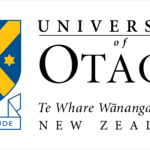
Study in New Zealand
New Zealand, an island country in the Pacific Ocean, is renowned for its rugby team, rich Māori culture, and stunning natural landscapes. The country offers a well-balanced and harmonious lifestyle, supported by excellent educational facilities, world-class research opportunities, and global accreditation. New Zealand intentionally promotes high-quality education for both its citizens and the international student community, with eight of its universities ranked among the top 3% worldwide, making it one of the best countries to study abroad.
In terms of cost, studying in New Zealand is more affordable compared to Australia and Canada—approximately 18% cheaper than Australia and 36% less than Canada. For Indian students, New Zealand is considered one of the most budget-friendly study destinations. Students living here can enjoy the unique blend of diverse culture and breathtaking natural beauty throughout their academic journey.

Universities
Universities in New Zealand provide higher education focused on research-based programs rather than vocational training. Impressively, all eight universities ranked within the top 100 in one or more subject areas in the 2015/16 QS World University Rankings.

PTEs & IPTs
Several large private training establishments (PTEs) and Institutes of Technology and Polytechnics (ITPs) provide vocational degree-level education.

A Private Training Establishment (PTE) offers a wide range of certificate and diploma-level courses.
Levels of the NZQF
A New Zealand Qualifications Framework (NZQF)-rated course is an internationally recognized professional program that is quality assured by the New Zealand government. When considering a study program or course in New Zealand, you can check the NZQF to see the specific qualification level you will achieve and the type of qualification awarded. If your qualification is listed on the NZQF, you can add it to your Record of Achievement.
Man who chooses to enjoy a pleasure that has no annoying consequences:
Secondary school qualifications include the NCEA (National Certificate of Educational Achievement) and basic-level trades training.
Certificates and diplomas for advanced trades, technical and business qualifications.
graduate certificates, graduate diplomas, and bachelor’s degrees.
postgraduate certificates, postgraduate diplomas, and bachelor Honours degrees.
Master’s degrees
Doctoral Degrees
Duty through weakness of will, which is the same as saying through shrinking from toil and pain. These cases are perfectly simple and easy to distinguish. In a free hour, when our power of choice is untrammelled and when nothing prevents our to do what we like best.
When choosing an institution, it is important to consider multiple factors such as employment rates and the institution’s reputation among recruiters. New Zealand is regarded as one of the best countries to study abroad for fields like business management and filmmaking. For students interested in art or 3D animation courses, a strong portfolio is essential to present to the faculty during admission. The universities also offer excellent programs in agricultural technology and viniculture; however, admission prerequisites for master’s degrees vary depending on your bachelor’s qualification. Seeking guidance from study abroad consultants at MasterKey Solutions is the easiest and fastest way to find courses and institutions in New Zealand that align with your personal preferences.






Data Science | 1-2 Years | NZ$ 37206 - 80967
Visual Art | 18 Months | NZ$ 35,900
Civil and Environmental Engineering | 4 Years | NZ$ 38,000 - 45,000
Marketing Management | 18 Months | NZ$ 84,520
Computer Science | 3 Years | NZ$ 36,962- 69,510
Visual Art | 18 Months | NZ$ 35,900
Geographic Information Science | 2 Years | NZ$ 42, 223
Architecture | 2 Years | NZ$ 56, 883
Health Sciences | 2 Years | NZ$ 36,272 - 81, 119
Mechanical Engineering PhD | 3 Years | NZ$ 32,577- 42, 841
Art | 2 Years | NZ$ 22,000 - 32,000
Preparing to study at a university in New Zealand typically begins at least a year in advance. While most academic sessions start in February or March, some universities may have different intake periods. To avoid missing important deadlines, it's essential to check directly with the relevant department before starting your application process. MasterKey Solutions, a trusted overseas education consultant, can provide detailed guidance on the admission process for New Zealand universities. Once you are aware of the application deadlines, you can begin preparing for standardized tests such as IELTS, Internet-based TOEFL (iBT), Paper-based TOEFL, Cambridge English: Advanced (CAE) or Proficiency (CPE), and Pearson Test of English (PTE) Academic. For the February–March intake, most application deadlines fall in December of the previous year. However, deadlines may vary depending on the university and department.
1. For a regular course, most universities require a statement of purpose, a copy of the applicant's passport, and two letters of recommendation.
2. The birth certificate, relevant passport pages, or citizenship certificate should provide proof of your name, date of birth, and citizenship or residency.
3. Academic transcript as evidence of what you have studied
4. Certificate of completion of the program- Academic
5. Detailed mark sheets for students at Indian institutions (12th or bachelor's degree mark sheet)
6. IELTS, TOEFL, or equivalent documents proving your English language proficiency
7. If you are applying to a particular study abroad program, you may be required to submit a portfolio or attend an interview.
Based on your eligibility, you may receive admission offers from multiple universities—an exciting opportunity that allows you to revisit your shortlist and carefully compare the pros and cons of each option. At this stage, it's wise to focus on factors such as the university’s Return on Investment (ROI) and employability rankings, which can significantly impact your chances of securing a job and obtaining permanent residency in New Zealand. You can also connect with peers who have used services from MasterKey Solutions to study abroad, as well as Indian nationals who are currently enrolled or have graduated from these programs. Platforms like LinkedIn and Facebook are useful for networking and gaining first-hand insights into their experiences. Once you’ve made your decision, you will need to pay the first year’s tuition fees to the selected university or institute. Upon payment, you’ll receive an official fee receipt, which is required to begin your student visa application process. Your overseas education consultant can guide you through each step of the visa process to ensure a smooth transition.
For international students studying in New Zealand, tuition fees represent the largest portion of educational expenses. The second major cost is student housing. On average, a student spends around NZ$1,250 per month on rent, groceries, phone bills, and other living expenses—equivalent to roughly ₹60,000 for Indian students. To offset these costs, students are allowed to work part-time—up to 20 hours per week during the academic year and full-time (40 hours/week) during official holidays, as specified by the university. However, Ph.D. and research-based Master’s students are permitted to work full-time year-round. Notably, international Ph.D. students benefit from local tuition rates, making New Zealand an affordable destination for doctoral studies. Tuition fees vary widely across the eight universities and depend on the level and field of study. For instance:
Undergraduate degrees: NZ$22,000 to NZ$32,000 per year
Medical/veterinary postgraduate programs: NZ$26,000 to NZ$37,000 per year
Ph.D. programs: Approximately NZ$6,500 to NZ$9,000 per year for most subjects
Arts and Social Sciences: ~NZ$20,000
Science and Engineering: ~NZ$25,000
Dentistry and Medicine: ~NZ$75,000
Popular Cities To Study in New Zealand
Auckland | Wellington | Hamilton | Queenstown| Nelson| Napier| Napier
A New Zealand student visa typically takes around 25 days to be processed, with most applications approved within this timeframe. However, delays can occur if any required documents or information are missing. Therefore, it’s crucial to choose your university early and wisely to avoid unnecessary delays in your visa application process. Once you receive an offer of admission from a recognized New Zealand institution, you become eligible to apply for a student visa. It is your responsibility to ensure that all necessary documents are prepared and submitted accurately. These include proof of admission, evidence of financial support, and other required documentation. Immigration New Zealand permits students to stay in the country on a student visa for up to four years. If you're following the New Zealand academic calendar, your student visa will be valid until March 31 of the following year. To streamline the process and avoid complications, you can seek expert guidance from overseas education consultants like MasterKey Solutions, who can assist with every step of your visa application and provide up-to-date advice.
● Letter of Acceptance: A formal letter confirming your enrollment in a full-time, daytime course from a recognized New Zealand institution.
● Fee Payment Proof: Official receipts showing registration and payment of tuition fees.
● Health Insurance Declaration: Evidence that you have valid private health insurance at the time of registration.
● English Language Proficiency: A copy of your English test certificate (e.g., IELTS, TOEFL, PTE).
● Scholarship Confirmation: Proof of any scholarships awarded (partial or full).
● Study Plan: A clear and concrete outline of your future academic goals.
● Completed Application Form: The official student visa application form, signed by the applicant.
● Passport-Sized Photos: Recent color photographs as per specifications.
● Valid Passport: An active passport with sufficient validity beyond the duration of your intended stay.
● Visa Fee Payment: Proof of payment for the visa application fee.
● Medical Certificates
● Police Clearance Certificate: If you intend to study for more than two years, you must submit a police certificate confirming a clean criminal record.
● Guardian Visa Information: If the student is under 13 years of age, guardian visa details must be included.
● Proof of Financial Means: Evidence of sufficient funds to cover your stay (bank statements, financial records, or proof of using the Fund Transfer Scheme – FTS).
● Certified Translations: All non-English documents and academic transcripts must be translated and certified in English.
New Zealand Commonwealth Scholarships
University of Auckland International Student Excellence Scholarship
University of Waikato International Excellence Scholarship
GyanDhan Scholarship
University of Otago International Research Masters Scholarships
Tongarewa Scholarship at Victoria University of Wellington
UC International First-Year Scholarships
New Zealand International Scholarships
Part-Time Work Opportunities for Students in New Zealand In New Zealand, international students are allowed to work up to 20 hours per week during the academic term and up to 40 hours per week during scheduled holidays—without the need for a separate work permit, provided they hold a valid student visa. Whenever possible, students are encouraged to seek employment on or near campus. On-campus jobs can significantly reduce travel expenses and allow students to spend more time at the university, which can positively impact their academic performance. To improve your chances of securing a job, it is highly recommended to prepare a New Zealand-style Curriculum Vitae (CV), which emphasizes practical experience, skills, and concise formatting aligned with local employer expectations.
Students in New Zealand are permitted to work up to 20 hours per week during the academic term. During scheduled holidays, they may work full-time, provided their course meets specific eligibility conditions. The minimum wage is NZ$16.50 per hour, which generally amounts to approximately NZ$13.25 after tax deductions.
You are enrolled in a full-time course of at least two years, or in a foundation program at level 4 or higher for at least one academic year at an institution in Canterbury. Additionally, your qualification qualifies for points under the Skilled Migrant Category.
During official holidays, you may work full-time if you are enrolled full-time in a course that is more than one academic year in duration or carries at least 120 credits. If you are a Ph.D. or Master’s student at a New Zealand tertiary institution, you are allowed to work unlimited hours throughout the year.
You may be eligible to apply for a Post-study Work Visa in New Zealand after completing your studies, provided you meet the qualification requirements. The duration of this visa—ranging from 1 to 3 years—depends on the qualification you’ve earned and the country where you studied. With a Post-study Work Visa, you can work for any employer in any location across New Zealand. If your partner holds a work visa, your dependent children may be eligible to study as domestic students. Holding a qualification in a field with a recognized skill shortage can further enhance your employment opportunities.
- 1 What kind of jobs are available to international students in New Zealand?
- Finding part-time jobs in New Zealand can be challenging for students without prior experience. If you're interested in a role at a particular establishment, it's helpful to ask a friend or colleague who has worked there to recommend you. To support international students in finding employment, the New Zealand government publishes the Essential Skills in Demand (ESID) list. This list identifies skills that are in short supply locally, allowing employers to more easily hire qualified overseas candidates, including international students, to fill these roles.
- 2 Is it possible for Indian students to work in New Zealand while they study?
- International students in New Zealand are allowed to work up to 20 hours per week during the academic term. During vacations, they may work full-time, which is up to 40 hours per week.
- 3 Do degrees received in New Zealand have international recognition?
- There is no doubt that New Zealand degrees are internationally recognized for their high-quality education.
- 4 How do New Zealand universities accept English language test scores?
- IELTS is the most widely accepted English language proficiency test among universities in New Zealand, with all institutions recognizing its validity. Study abroad consultants in India, such as Gateway International, can assist you with all the necessary prerequisites for your study abroad program.
Post a comment Cancel reply
Related Posts
Study in United States
How well this mistaken ideas off denouncing pleasure & praisings will give you complete.
Study in UK
How well this mistaken ideas off denouncing pleasure & praisings will give you complete.
Study in Singapore
How well this mistaken ideas off denouncing pleasure & praisings will give you complete.
Study in Ireland
How well this mistaken ideas off denouncing pleasure & praisings will give you complete.
 Demos
Demos  Colors
Colors 
 Docs
Docs  Support
Support 























